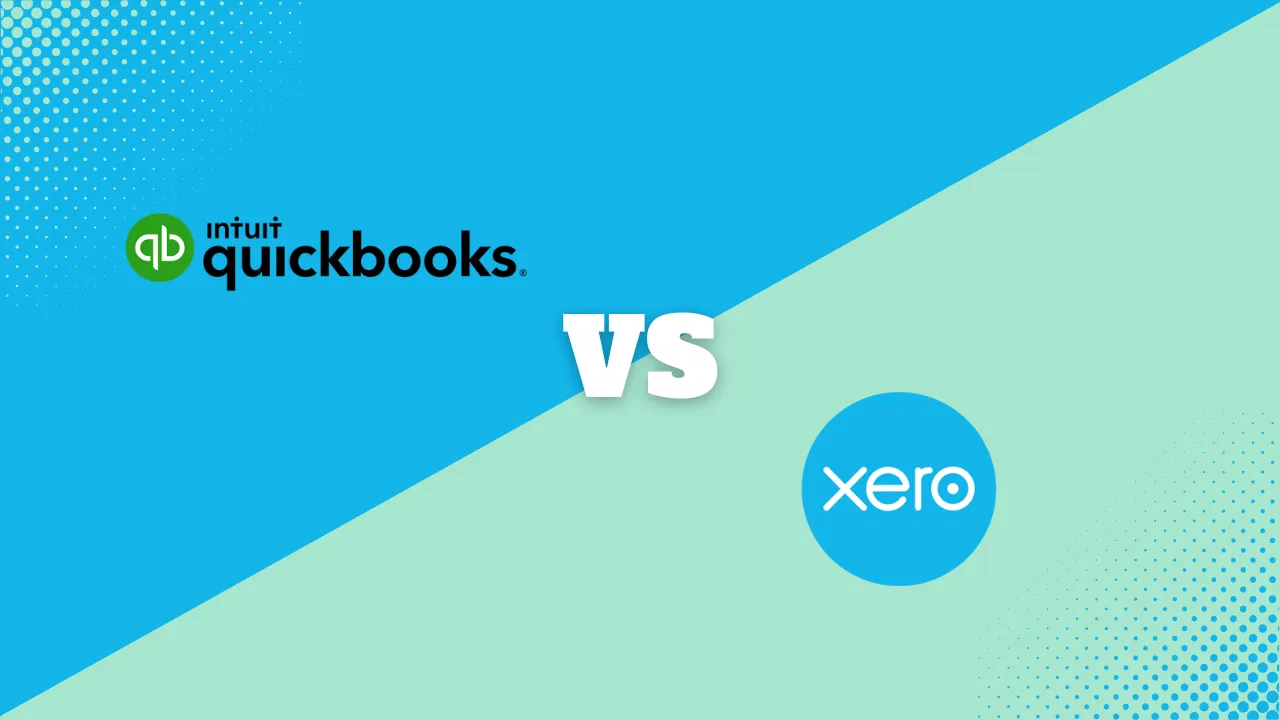Which State is the Best for LLC Formation? Top States for Privacy, Low Taxes, and Business Success

Choosing the right state to form your Limited Liability Company (LLC) is a vital decision that can affect your tax obligations, privacy, legal protections, and overall costs. While most business owners register in their home state, certain states have earned reputations as the best states to incorporate your business due to their pro-business laws, favorable tax structures, and minimal administrative requirements. This article will break down why states like Wyoming, Nevada, Delaware, Texas, and Florida are often considered the best states to form a business and help you decide where to incorporate.
Register Locally or Consider Going Elsewhere?
The decision to register your LLC business in your home state is often recommended due to its simplicity and speed. However, your business home state’s specific laws and tax regulations may pose significant challenges. In such cases, the prospect of registering in a different state becomes an attractive alternative.
State-Specific LLC Advantages
Certain states offer unique advantages for LLC formation. For example, Wyoming stands out with its absence of personal and corporate income tax, making it an appealing choice for many businesses. Nevada, on the other hand, does not impose franchise taxes and provides robust privacy protections for business owners.
Why Certain States Stand Out for LLC Formation
Selecting the best state to incorporate your business is critical, as it can impact taxes, fees, privacy protections, and legal frameworks. Below is a detailed analysis of why states like Wyoming, Nevada, Delaware, Texas, and Florida are often the top choices for small businesses and LLC owners. This section also explores general business taxes, state maintenance fees, and ongoing costs to provide a comprehensive overview.
1. Wyoming – The Pioneer of Business-Friendly LLCs
Wyoming has consistently ranked as one of the best states to incorporate small business, thanks to its pro-business laws and low costs.
Key Benefits:
- No Corporate or Personal Income Tax: Wyoming does not impose income taxes on LLCs or their owners, which can save thousands annually compared to states with high tax rates.
- Low Formation and Maintenance Fees: Filing fees are among the lowest in the nation, with annual maintenance costs also being minimal. For example, the annual report fee is only $60.
- Strong Privacy Protections: Wyoming does not require LLC members or managers to be listed in public records, ensuring a high level of anonymity.
- Asset Protection: Wyoming provides robust protections for LLC assets, shielding them from lawsuits or creditors. Additionally, the state offers “charging order protection,” which limits creditors to collecting distributions rather than seizing ownership interests.
- No Franchise Tax: LLCs in Wyoming are exempt from franchise taxes, which are common in many other states.
Tax and Maintenance Overview:
- Annual Report Fee: $60.
- Registered Agent Requirement: Yes, which may add additional costs if you hire a service provider.
- Sales Tax: 4%, but exemptions may apply depending on the business type.
2. Nevada – Favorable Tax Structure and Anonymity
Nevada is a popular state for entrepreneurs looking for tax benefits and privacy protections. It is frequently considered one of the best states to incorporate for privacy and tax efficiency.
Key Benefits:
- No State Income Tax: Nevada does not levy personal or corporate income taxes on LLCs, making it particularly attractive for high-revenue businesses.
- No Franchise Tax: LLCs avoid paying franchise taxes, reducing the overall cost of doing business in the state.
- Strong Privacy Laws: Members and managers are not required to disclose personal information in public filings, ensuring privacy and anonymity.
- Pro-Business Legal Environment: Nevada’s courts are known for being business-friendly, with a history of rulings that protect companies in litigation.
Tax and Maintenance Overview:
- Annual List Filing Fee: $150.
- Business License Fee: $200 annually.
- Sales Tax: 6.85%, one of the higher rates compared to other states.
- Registered Agent Requirement: Yes, which adds additional costs if you operate outside Nevada.
3. Delaware – The Corporate Capital of the U.S.
Delaware is renowned for its business-friendly legal framework and is often the first choice for larger corporations and those seeking investor funding. It is widely regarded as one of the best states to incorporate your business due to its efficiency and flexibility.
Key Benefits:
- Efficient Legal System: The Delaware Court of Chancery specializes in corporate law, offering quicker resolutions to disputes and avoiding jury trials.
- Established Case Law: Delaware has a comprehensive body of legal precedents, providing clarity and predictability for businesses.
- Tax Benefits for Out-of-State Income: Businesses that do not operate in Delaware are not taxed on income earned outside the state.
- Flexible LLC Laws: Delaware allows for highly customizable operating agreements, enabling business owners to tailor governance structures.
Tax and Maintenance Overview:
- Annual Franchise Tax: A minimum of $300.
- Filing Fee for LLC Formation: $90.
- Registered Agent Requirement: Yes.
- Sales Tax: None, which can be advantageous for certain types of businesses.
4. Texas – Pro-Business Policies and High Revenue Thresholds
Texas has emerged as an attractive state for businesses due to its booming economy and tax benefits. It’s particularly appealing for entrepreneurs asking what state to incorporate in when revenue thresholds matter.
Key Benefits:
- High Franchise Tax Exemption Threshold: LLCs are exempt from franchise tax until annual revenues exceed $1.2 million, making it ideal for startups and small businesses.
- No Personal Income Tax: Texas does not tax personal income, offering savings for LLC owners who draw profits.
- Diverse Economy: Texas is home to thriving industries like technology, energy, and manufacturing, providing ample business opportunities.
Tax and Maintenance Overview:
- Franchise Tax: Varies based on revenue; exemption for revenues under $1.2 million.
- Annual Report Fee: $0 for most LLCs unless subject to franchise tax.
- Sales Tax: 6.25%, with additional local taxes possible.
- Registered Agent Requirement: Yes.
5. Florida – User-Friendly Filing and Growing Economy
Florida is an increasingly popular choice for entrepreneurs seeking a straightforward LLC formation process and access to a growing market. It’s considered one of the best states to form a business, particularly for smaller companies.
Key Benefits:
- Online Filing and Transparency: Florida offers an easy-to-use online filing system for LLC formation and document retrieval, including Articles of Organization and Annual Reports.
- No State Income Tax: LLC owners benefit from not paying personal income tax on business earnings.
- Business Growth Opportunities: Florida’s growing population and robust economy provide significant market potential for businesses.
Tax and Maintenance Overview:
- Annual Report Fee: $138.75.
- Sales Tax: 6%.
- Registered Agent Requirement: Yes.
General Considerations: Business Taxes and Maintenance Fees
Regardless of the state you choose, understanding the following is crucial:
- Franchise Taxes: Some states impose franchise taxes, which can significantly increase annual costs. For example, Texas exempts LLCs with revenues under $1.2 million, while Delaware imposes a minimum $300 franchise tax.
- State Income Taxes: States like Wyoming, Nevada, and Florida offer significant savings by not imposing state income taxes on LLCs.
- Annual Maintenance Fees: States like Delaware and California have higher ongoing costs, while Wyoming and Nevada are more affordable.
- Registered Agent Requirements: Most states require LLCs to designate a registered agent, adding additional costs if you operate remotely.
Five Factors to Help You Decide Which State to Incorporate an LLC
Can one state provide a better business climate than another? Yes. Registering your business in a state with a business-friendly reputation offers more perks. If you consider that some states provide unique asset protections, any additional expenditure of time and money might seem cheap.
It is common for LLC owners to form their LLCs in the state where they intend to do business – often their home state. But creating an LLC in a state other than the one where it does business can increase the formation and administrative costs since the LLC will have to register as a foreign LLC. So before moving to Delaware, here are five factors you should consider when making your decision below.
Limited liability companies protect owners from personal losses. LLCs can be formed for almost any trade and owned by anyone. Corporations are easier than sole proprietorships, but more complex.

1. Formation Expenses to Consider
Doing business in your home state requires registering an LLC, even if the LLC is formed in another state. For instance, registering an LLC in Texas costs $300, three times as much as in Delaware.
But if you choose Delaware over Texas for the startup fee, your savings will be wiped out after one year. Depending on the state, filing fees can be deceptive. It costs only $100 and $90 to file in Maryland and Delaware, respectively, but these fees only put you in a queue that can take many weeks to get an LLC certificate.
You may have to pay extra for “expedited service” if you want your LLC to be formed within a reasonable timeframe in a state charging less. When deciding what state to incorporate, disregard initial filing fees as the primary consideration.
2. State Maintenance Fees and Other Expenses
To maintain your company’s registration in its home state, you must pay annual fees to the state for keeping it registered and the cost of maintaining a registered agent there.
The annual maintenance fee for LLCs is often lower than the initial filing fee. But it’s more expensive in some states to maintain your registration than to form it (California, DC, Delaware, and Maryland, for instance).
Additionally, you will be required to register your company in every state where your company operates and pay annual fees there. It is called “foreign registration” or “registration as a foreign entity.”
You will also have to pay for a registered agent in each state where you register. For example, Texas requires LLCs to designate a registered agent with a Texas address to receive legal documents.
You may want to avoid registering your company in a state where it doesn’t do business, has no regular physical presence, or needs a registered agent unless there is some other compelling reason.
3. Income Tax Considerations
Taxes and fees in both states are a significant concern when you form your business in one state while earning income in another. State income tax classifications for LLCs differ from state to state.
To find out how a state taxes LLCs, visit the state’s revenue department once you have determined your LLC’s tax status.
There are two factors to consider:
- How is the tax calculated? Almost all states base their state taxes on federal income taxes, but some states modify that basis.
- What effect does the LLC’s tax classification (sole proprietorship, partnership, S corporation, or corporation) have on state income taxes?
All states impose franchise tax, annual reporting fees, and other taxes on incorporated companies. A state taxes your business if it has a physical or economic presence there.
What is a Franchise Tax?
In some states, income tax is called a franchise tax. Contrary to its name, a franchise tax is not a tax on franchises. Instead, states impose a tax on companies that operate within their borders, such as limited liability corporations (LLCs). It allows them to exist as legal entities and carry-on business.
For example, forming an LLC In in Nevada means no franchise tax. Delaware might be the cheapest on how to get an LLC, but there are better choices regarding ongoing expenses. Why? Delaware franchise fees are a minimum of $300, while Texas companies will only owe franchise fees once their revenues reach $1.2 million.
In other states, LLCs may be subject to a gross receipts tax instead of an income tax.
4. Reputation for Pro-Business Law
Did you know Delaware is home to more than half of the stock exchanges, NASDAQ companies, and 60% of Fortune 500 companies? The Delaware corporation makes up 75% of all IPOs in the United States.
While the United States often ranks as one of the best countries for starting a business, state-to-state differences exist in business law. A pro-business law is one of the factors to consider, and Delaware’s “Delaware advantage” is pro-business.
Thanks to the Chancery Court, a non-jury court with a corporate law specialty, and the state’s laws themselves. For example, according to its business judgment rule, the court cannot second-guess company leaders’ decisions regarding stockholder interests.
In your LLC, you are free from court interference, subject only to the yearly exercise by stockholders of their right to elect the board, and are free to take whatever actions you deem appropriate.
The Chancery Court is the only court among the 50 states focused on business. Compared to state courts, the Chancery Court will likely resolve business litigation matters more expeditiously. Moreover, Delaware’s extensive case law is a roadmap for judges, businesses, and their legal counsel regarding what is permissible in business.
5. Online Filings and Access to Information
Depending on your concerns, public access to information and online filing and retrieval of documents can be an advantage or a disadvantage. An example of a state that provides user-friendly online filing services in Florida. When thinking of how to start an LLC in Florida, your LLC’s information, including the below, is made publicly available online:
- Articles of Incorporation
- Articles of Organization
- Annual Reports
In addition to allowing you to quickly retrieve your company’s information for free on the Department of State website, such online services can be convenient for business owners. Clients, investors, banks, etc., find it easier too.
If you value privacy, an LLC in Nevada, Delaware, and Wyoming offers business asset protection. The state’s online filing services may differ widely, but they are known for their minimal reporting and disclosure requirements.
In public filings, this facilitates anonymity for business owners, making it easier to hide assets and avoid litigation. Furthermore, Wyoming allows you to protect your identity by appointing a third party to hold your stock while you retain voting rights.
Forming an LLC in Nevada does not share financial information with the IRS. You may need to publish the LLC’s articles of organization in a newspaper if you are considering how to create an LLC in New York.
If you are considering registering an LLC in NY or need help creating an LLC in any other state, seek help from an expert. This is especially true if your home state is deficient from an asset protection perspective.
So, what’s the best state in which to start your LLC?
The best state to form a business ultimately depends on your business’s specific needs, priorities, and operational structure. If you prioritize low taxes and privacy, Wyoming, Nevada, and Delaware are top contenders. Texas and Florida are excellent choices for businesses looking to minimize franchise tax or leverage local opportunities.
However, if your business primarily operates in one state, forming your LLC locally simplifies compliance and reduces costs.
No matter where you form your LLC, always consider taxes, maintenance fees, and your business’s long-term goals. Consult an expert to ensure you’re making the most informed decision for your business’s success.




